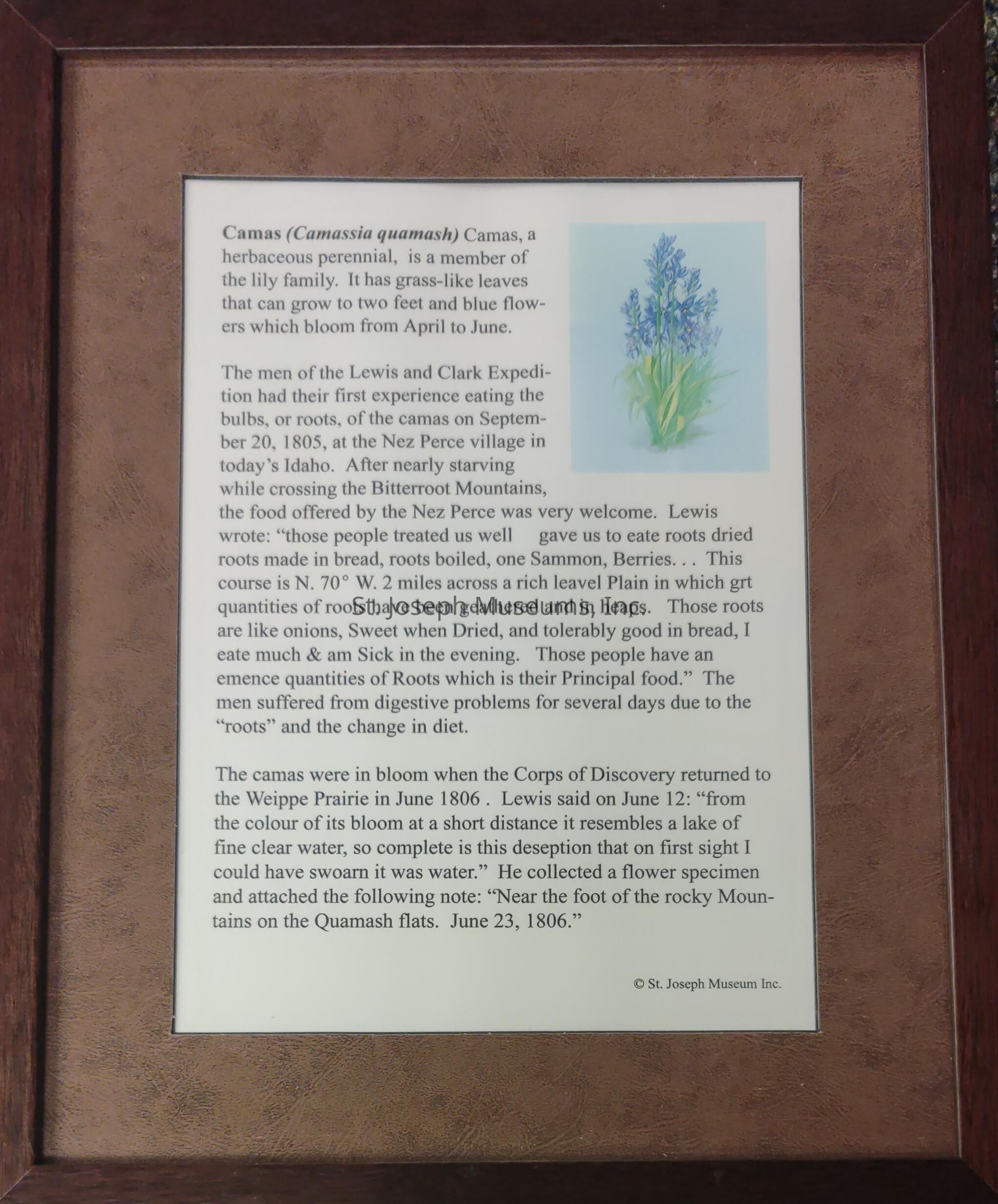Name/Title
Camas (Camassia quamash)Entry/Object ID
2021.1.41 BScope and Content
Camas (Camassia quamash) plant description, framed.
Camas, a herbaceous perennial, is a member of the lily family. It has grass-like leaves that can grow to two feet and blue flowers which bloom from April to June.
The men of the Lewis and Clark Expedition had their first experience eating the bulbs, or roots, of the camas on September 20, 1805, at the Nez Perce village in today's Idaho. After nearly starving while crossing the Bitterroot Mountains, the food offered by the Nex Perce was very welcome. Lewis wrote; "those people treated us well gave us to eate roots dried roots made in bread, roots boiled, one Sammon, Berries... This course is N.70 [degree] W. 2 miles across a rich leavel Plain in which grt quantities of roots have been gathered and in heaps. Those roots are like onions, Sweet when Dried, and tolerably good in bread, I eate much & am Sick in the evening. Those people have an emence quantities of Roots which is their Principal food." The men suffered from digestive problems for several days due to the "roots" and the change in diet.
The camas were in bloom when the Corps of Discovery returned to the Weippe Prairie in June 1806. Lewis said on June 13: "from the colour of its bloom at a short distance it resembles a lake of fine clear water, so complete is this deseption that on first sight I could have swoarn it was water." He collected a flower specimen and attached the following note: "Near the foot of the rocky Mountains on the Quamash flats. June 23, 1806."Context
Originally designed by the St. Joseph Museum in the fall of 2004. Titled "Botanical Wonders of the Uncharted West. The Recorded Flora of the Lewis & Clark Expedition."Collection
Lewis and ClarkLexicon
LOC Thesaurus for Graphic Materials
Botanical drawings, Expeditions & surveysArchive Items Details
Title
Camas (Camassia quamash)Creator
Mary L. FletcherDate(s) of Creation
2004Subjects
Plants, Watercolor paintingsParts
Count
2Parts
Watercolor of plant and descriptive label, both framed.Condition
Overall Condition
Very GoodProvenance
Notes
"Botanical Wonders of the Uncharted West" visually depicts how well Lewis followed Jefferson's instructions. In recognition of this achievement, The S. Joseph Museums, Inc. commissioned accomplished artist Mary Fletcher to create fifty (50) selected paintings of flora documented by the Corps during their Journey. These framed watercolor originals are accompanied by similarly framed labels, generated by former Head of Research Jackie Lewin, which describe the corresponding plants with appropriate quotations from the Journals. This collection makes available for study and appreciation plants that were new to Lewis and Clark, but which Native Peoples already recognized as valuable sources of food, medicine, and tools. Some of these still remain a mystery to many, but all will enjoy their beauty, their diverse uses, and their accomplished renderings.
